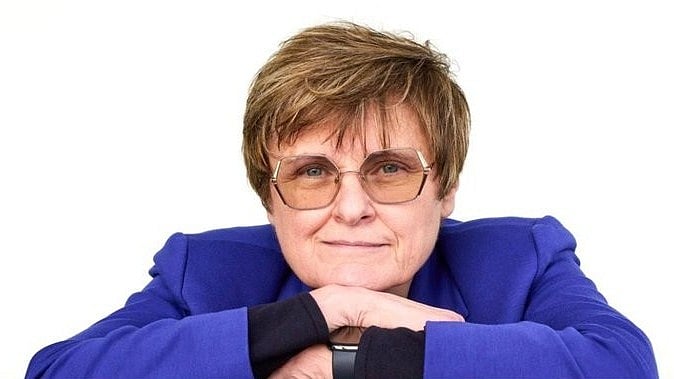
Nobel Prize winner Katalin Kariko.
Credit: X/@kkariko
Katalin Kariko, the recipient of the 2018 Nobel Prize in Physiology or Medicine has outlined her journey till her prestigious award win where she was 'kicked out' of the University of Pennsylvania ten years ago and was consequently forced to retire, India Today said in a report.
From 1989 until her departure in 2013, she worked as an adjunct professor at the university. She soon joined BioNTech, a German biotechnology business that teamed up with Pfizer in 2020 to create mRNA vaccines against Covid-19.
Kariko and Drew Weissman shared the Nobel Prize for their research on nucleoside base modifications, which paved the way for the creation of Covid-19 mRNA vaccines.
Kariko told Adam Smith, the Chief Scientific Officer at Nobel Prize Outreach, that she initially believed "someone was joking" when she learned she had won the Nobel Prize.
When discussing her work on mRNA research, Katalin Kariko, who is now 68, said that she started all of her experiments at the age of 58 and carried them out herself.
"I was 58 years old and I was still culturing plasmids and feeding cells". She continued by saying that for nine years, she frequently commuted from the US to Germany, where the company was based.
"My mother always listened to the announcement of the Nobel Prize and she would tell me, the next time they announce it, maybe you will get it,” Kariko said while remembering her mother who passed away in 2018.
The Nobel laureate also offered some guidance for other women scientists. She claimed that they could have it all without having to choose between their families and their research.
Katalin Kariko said, "As a woman and a mother, I try to tell fellow female scientists that you don't have to choose between having a family. You can have it, you don't have to just assist your child. Your child will watch you and then they will do it because that's what counts -- the example that you present.”
The Nobel Prize winner Katalin Kariko has a daughter, Susan Francia who is a two-time Olympic gold medalist in rowing and a five-time world champion.
Kariko credits Hans Selye, a Hungarian-Canadian scientist whose book she read when she was 16, for being her inspiration.
Kariko stated that Hans Selye's mantra was to focus on things that one can change. The fact that some of their friends or coworkers are succeeding causes a lot of young people to give up. And it appears that despite doing less, they still manage to advance in their careers and earn higher salaries.
“I say that if you notice that, you have already taken away your attention from what you can change, because you cannot change that," said Kariko.
She continued by saying that she did not dwell on her dismissal from the University of Pennsylvania or wonder "why me?"
Kariko said, "You have to spend all your energy on seeking what is next and what can I do?"
She also discussed her relationship with her research partner Drew Weissman, saying that despite having very different personalities outside of the lab, they get along well.
"Once Drew told me, 'Kati from A to B, you go zigzag and I go straight'," said Kariko.
Hungary-born Katalin Kariko immigrated to the US in 1985 after the lab where she was employed lost funding. She began working for BioNTech as its vice president in 2013 and was given a promotion to senior vice president in 2019.
